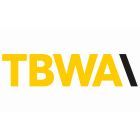
Money, Mortality and More: Why the Finance Sector Needs to Confront Taboos

“Nothing is certain, except death and taxes.” With all of the developments that the finance sector has seen technologically over the past decade, with the rise of digital wallets, online banking and crypto currency, it’s striking how little has really changed since Benjamin Franklin wrote those words back in 1789.
While it’s true that the tools for managing and moving our money would be unrecognisable to one of the United States’ founding fathers, that complicated intertwining of finance and mortality is something that’s as relevant today as it was then. There’s no getting away from death, and there’s no getting away from the way in which money is tied into death, as it is with all of the major moments in a human’s life.
And so, when TBWA’s cultural insight unit, Backslash, took a deep dive into the future of finance and the cultural shifts surrounding it, the team found themselves immersed in the profundities of life, facing up to a series of taboos. While technological developments are also covered by the report, the team shows potential tension points where tech is divorced from collective culture, humanity and emotion.
Cecelia Girr is director of cultural strategy for TBWA’s Backslash. “Finance is tied to those things. It is tied to birth, it is tied to death, it is tied to all of life. But it's been so divorced from that for so long. And to finally re-insert it into the way we actually live is so exciting,” she says.
The Future of Finance report is part of a series that considers 2021 as ‘Year Zero’, a year of a Covid-driven reset and re-emergence. While many of the cultural shifts explored in the report are deeper, and have been building momentum over several years, it’s also true that Covid-19 has sped some of these changes up as well as exposing people’s hidden financial vulnerabilities and triggering a sense of survivalism.
“Ultimately, what we spend on reflects what we value both as individuals and as a society, and finance is so tied to culture and is becoming increasingly so. The industry is evolving so fast and it's causing a cultural reprioritization,” says Cecelia.
One big change that has been a long time coming, but has been accelerated by the global lockdown, is the idea of financial wellness. The wellness movement’s focus on self-care and avoidance of difficult confrontations as a panacea for deep-rooted mental and physical health obstacles has been shown up as being inadequate. The taboos around talking about money and money problems is compounding people’s problems – money worries are a leading cause of stress and according to the report, people with anxiety and depression are three times more likely to be in debt than those without.
Depending on how you see it, this presents the financial sector with an opportunity or a responsibility to help people. The report suggests that, while the trend for virtual platforms and AI-driven helpers might make sense from a cost point of view, the finance sector ought to think about borrowing from the world of therapy and counselling, and using physical spaces as sites for the equivalent of ‘financial therapy’.
“Zooming out of the finance world, we’re in this massive and seismic, cultural taboo-toppling moment with wellness,” says Cecelia. “Wellness, as we've seen with Covid is moving on from Goop and ‘look-good-feel-good’ yoga and green juice. As we move into the next wave of wellness, we're lifting the lid on some of the actual, real pain points in society and things that have a much larger impact on our mental health. That’s death, sex, money, and socialising; the things that are foundational to our lives and to culture. They've been these more controversial, riskier taboo topics, because we don't want to question or poke at them and say, ‘hey, are we actually doing this wrong?’ because they're so culturally codified. Wellness is changing all of that. And it's really exciting in terms of money because it's actually been making us sick for so long.”
The big change, Cecelia observes, is that thus far financial health has played out in a very mechanical, numerical fashion. Many apps that help people manage their spending or finances do so using simple gamification mechanics. They may work for some people, but they’re not terribly human, and for those on the verge of burnout, those app notifications can become yet another layer of judgement and failure.
“One thing that's interesting to me is that, for years, people have been talking about financial health, financial health, financial health… but what is financial health? It's just like this catch-all phrase, it's pretty cut-and-dry and practical, with a focus on the numbers. But what's interesting about financial wellness and what we're talking about in the report is that it takes a super holistic approach and explores our relationship with money alongside all the emotional struggles that come with it. So, it gets to the ‘why’, rather than the ‘what’, and the more we see services and products that are geared towards financial therapy, the more normalised it's going to be,” says Cecelia, who thinks that this normalisation will make it easier for people to seek help. “I think we'll start to see ourselves have less of those detrimental health effects that are tied to money, hopefully, as more financial players get in on this space.”
Of those taboos, death gets a refreshing spotlight in the report. ‘Death Undone’ is one of the key opportunities or entry points the report offers up. Anyone who has gone through the stress of unpicking a family member’s financial affairs while in the throes of grief or the emotionally-heightened drama of a contested estate will attest to the pain that unresolved finances can cause. As the report shrewdly points out, death is one thing that 100% of the population faces – and yet it’s still something of a forbidden topic, particularly where money is concerned. The report even floats the idea of pairing financial planners with death doulas (a growing group of professionals tasked with helping people prepare for and experience end of life).
Cecelia thinks it’s taken a deeper cultural shift in order to enable these conversations around death and finance, and to create a role for the sector that doesn’t feel awkward or inappropriate. The report identifies the rise of the death doula and an explosion of products and services geared around death – mirrored almost paradoxically by the finding that since 2017 the number of people with a will has dropped 25%.
“There’s so much emotional trauma during that time. There's so much that you have to do, and there's so much on you as a caregiver and or as a person facing death. And it's crazy that the financial world hadn’t found a way yet to integrate into that process. I think primarily that’s because there wasn't a process on the health side of things, the business of the funeral. Now with death wellness becoming a part of our wellness practice, there is more of a point where finance can converge.”
It’s not all about death and depression – one very exciting shift is the growing opportunity presented for finance brands and businesses that take women, their needs, ambitions and spending power seriously. Even today, the finance sector is largely a male-led industry – and it risks losing out if it continues to ignore an increasingly empowered half of society. According to McKinsey, American women are predicted to control about $30tr of assets by 2030, which will be an increase of about $20tr from 2016. Record numbers of single women are becoming homeowners and female entrepreneurship is on the rise around the world. Nonetheless, driven women who want to have a family are facing tough decisions around IVF that have been largely ignored. The report highlights Jefa, a new Latin American bank designed specifically for women and which also provides rewards and products that are rooted in consideration for female health needs.
As well as highlighting opportunities and shifts, the report also showcases some of the tricky tension points that the financial sector has to navigate. For example, a growing industry push for biometrics and digital wallets can make spending almost too frictionless for those who struggle to control their money. At the same time, the global pandemic has engendered a sense of survivalism and a growing appetite to save and a need for safety nets. Moreover, the distorting impact of the cost of housing and reaching maturity amidst a rapid succession of recessions means that millennials and Gen Z are putting off house ownership and starting families of their own, which will have an impact over time on demand for financial products.
Moreover, none of these movements is necessarily about quick fixes. They’re deep shifts and require a deep understanding of human behaviour and psychology. For the finance sector, specifically, some of those shifts might feel too difficult or too antithetical to the norms of the industry to even countenance. But, cautions Cecelia, the old established names risk losing out to disruptors if they fail to get to grips with these changes. She also suggests that finance businesses will need to think about how to attract and retain more creative and people-centric talents to work alongside the analysts, traders and digital experts.
“None of them are quick. They require infrastructure, they require rethinking your business, they require commitment. So, I think that you're going to have more of the bolder players that want to act on these. I think the biggest thing that's going to be foundational is first breaking the money taboo. Just rethinking how you discuss money and how you, in your communications, talk about it. I think that, probably, the quickest win is to get more transparent and candid about money in your practices. That's easier than transforming the whole way that your business is structured,” says Cecelia.
Nonetheless, in the longer term, finance brands will have to think beyond surface-level solutions. There are already several new players and disruptors in the digital banking and finance space that are showing promise. Apps like Emma (ironically, founded by eight men) that has created an online platform around the idea of financial therapy, or in the US, there’s an app called Charlie that can help create rules, rewards and punishments around spending.
“Thinking about the new entry points and innovating around those is going to be critical to keeping major segments of consumers to making sure that you don't lose your consumer base to new disruptors who are coming in,” says Cecelia. “It’s about making the services and the products that you put out more specific and more tied to lifestyle, gender and specific needs, rather than this one size fits all approach that finance has been built around for so, so long.”
Read the report here.
Photo by Matthis Volquardsen from Pexels.













